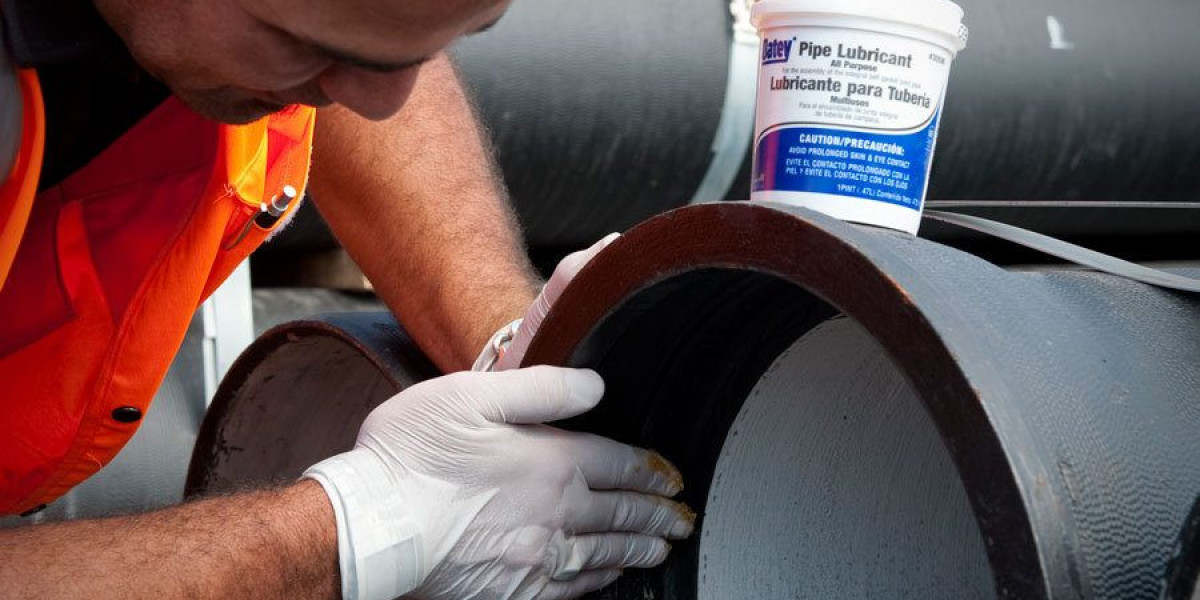In plumbing and piping systems, two of the most common problems are leaks and corrosion. These problems can lead to serious damage, expensive repairs, and wasted time. One simple but powerful tool that helps prevent these issues is pipe grease.
While it might seem like a small part of the job, pipe grease plays an important role in keeping pipes, fittings, and connections safe, strong, and working properly for a long time. In this article, we will explore what pipe grease is, how it works, and why it is essential for preventing both leaks and corrosion in all types of piping systems.
What Is Pipe Grease?
Pipe grease is a type of lubricant made specifically for use on pipes and fittings. It is thick, sticky, and made to last in tough conditions. It is often used when assembling threaded pipe joints, valves, couplings, and other connections.
Pipe grease is not the same as regular grease used for machines or vehicles. It is made to handle water, gas, chemicals, and pressure. Some pipe grease products are also safe for drinking water lines and can be used in homes, businesses, and industrial systems.
The grease forms a protective layer between pipe threads or surfaces. This layer helps in two main ways:
It allows easy tightening without damaging the threads.
It blocks moisture and air, which helps stop rust and leaks.
How Does Pipe Grease Prevent Leaks?
Leaks can occur when there are tiny gaps between pipe threads or surfaces. Over time, movement, pressure, or poor installation can make these gaps bigger. Water, gas, or other fluids can then escape from the connection.
Here is where pipe grease makes a big difference. When applied to the threads or seals of a pipe, it fills in those tiny spaces. The thick texture of the grease creates a tight seal that stops fluids from leaking out.
Also, pipe grease makes it easier to screw pipe parts together tightly. This reduces the risk of cross-threading, which can damage the pipe and lead to leaks later. It also helps ensure a solid fit that can handle pressure without slipping or cracking.
In short, pipe grease works like a soft cushion between pipe parts, holding them together firmly while blocking leaks at the same time.
How Does Pipe Grease Stop Corrosion?
Corrosion is the natural wearing down of metal over time. When metal is exposed to air, water, or chemicals, it can begin to rust or corrode. This weakens the pipe and can lead to holes, cracks, and failure.
Pipe grease helps fight corrosion by forming a barrier between the metal and the outside world. Once applied, the grease blocks out air and moisture. This keeps the metal from reacting and breaking down.
Even in places with high humidity, salt, or chemicals, pipe grease can protect the surface of the pipe. It clings to the metal and does not wash away easily, even under pressure or in wet conditions.
Using pipe grease in pipe systems helps extend the life of pipes and fittings, especially in outdoor or underground jobs where corrosion is a common risk.
Common Areas Where Pipe Grease Is Used
Pipe grease is used in many settings, from small home plumbing jobs to large industrial projects. Here are a few common areas where pipe grease plays an important role:
1. Water Supply Systems
In homes, buildings, and factories, water supply pipes need to be leak-free. Pipe grease is used on the threads of faucets, valves, and connections to stop water leaks and keep the system strong.
2. Gas Lines
Gas pipes must be tightly sealed for safety. A small leak can be dangerous. Pipe grease helps seal threaded gas fittings, reducing the risk of gas escaping and protecting the connection from wear.
3. Irrigation and Outdoor Piping
Pipes used outdoors are exposed to rain, mud, and temperature changes. Pipe grease is applied to protect these connections from rust and to keep the pipes easy to disconnect when needed.
4. Industrial Piping Systems
In factories and plants, pipes carry chemicals, steam, or air under high pressure. Pipe grease helps make tight seals that handle stress while protecting from corrosion and chemical reactions.
5. Well Systems and Pumps
Pipe grease is used in deep well systems and water pumps to seal threaded connections and protect metal parts from underground moisture and minerals that cause rust.
Benefits of Using Pipe Grease
Using pipe grease offers several strong benefits in any type of piping project:
Leak Prevention: It fills small gaps and helps form a tight seal.
Corrosion Protection: It keeps out air and water that cause rust.
Easy Assembly and Disassembly: It reduces friction, making pipe parts easier to connect and later disconnect.
Thread Protection: It reduces the risk of thread damage from over-tightening or rust.
Longer Pipe Life: It helps extend the life of fittings, valves, and joints.
How to Apply Pipe Grease Properly
To get the best results from pipe grease, it should be applied the right way. Here are some simple steps:
Clean the Threads or Surfaces: Make sure there is no dirt, rust, or old grease. Use a brush or cloth if needed.
Apply a Thin, Even Layer: Use a finger, brush, or applicator to spread the pipe grease over the threads or surface. Do not use too much. A thin layer is enough.
Assemble the Pipe: Screw the parts together tightly but not too hard. The grease will help them fit smoothly.
Check for Leaks: After the system is pressurized, check for any signs of leaks. If the connection is still leaking, it may need to be taken apart, cleaned, and reassembled.
Always choose the right pipe grease for the type of pipe you are working on. Some grease is made for water, some for gas, and others for chemicals or high heat.
Mistakes to Avoid
Even though using pipe grease is simple, there are some mistakes to avoid:
Using the wrong type of grease: Make sure the grease is made for the kind of fluid or pipe system you're working with.
Overapplying the grease: Too much grease can make the fitting hard to tighten and cause slipping.
Using on plastic if not approved: Some pipe grease is not safe for plastic pipes. Always check the label or ask the supplier.
Skipping cleaning before applying: Dirt or rust under the grease will stop it from working properly.
Final Thoughts
Pipe grease may seem like a small part of a piping system, but its role is big. It helps stop leaks, protects against corrosion, and makes pipe systems safer and longer-lasting.














